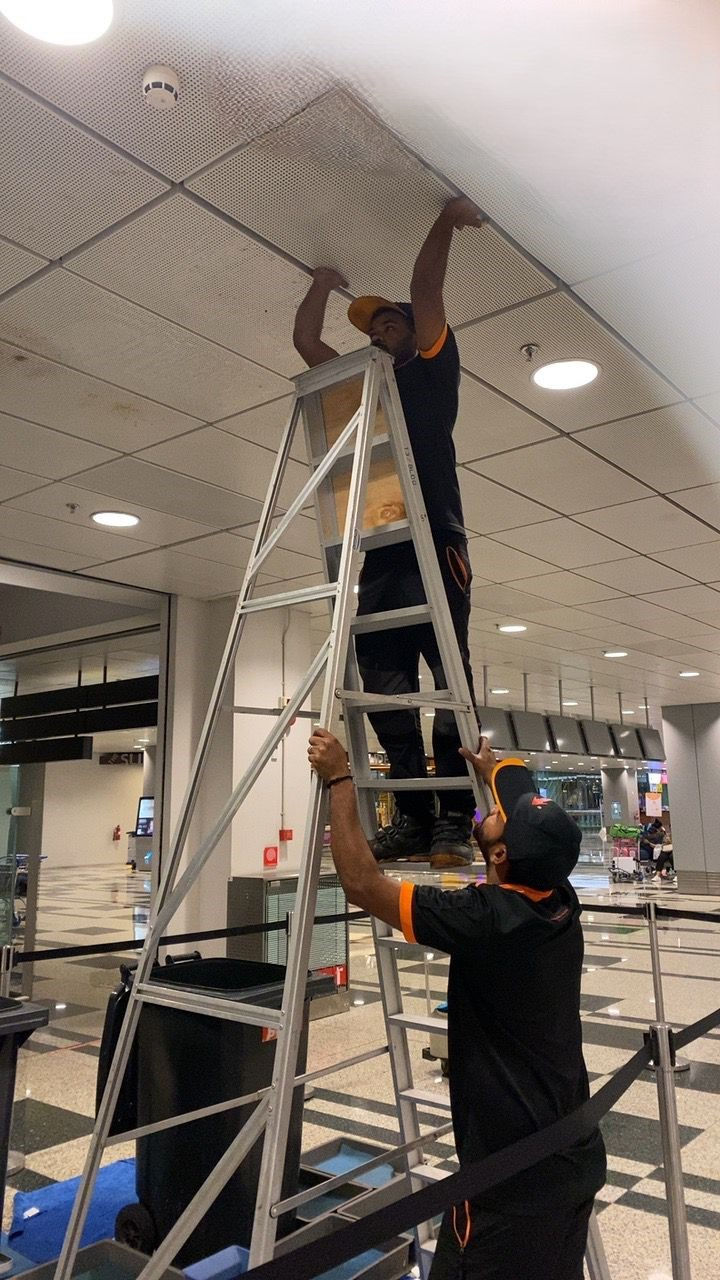The Importance of Preventive Maintenance: Is It Truly Necessary?
- shaik67
- Aug 30, 2025
- 3 min read
Maintaining kitchen waste pipes is crucial for several reasons:
Preventing Clogs and Blockages: Kitchen waste pipes often carry away food debris, grease, and other substances that can build up over time. Regular maintenance helps prevent these materials from accumulating and causing clogs, which can lead to slow drainage or complete blockage.
Avoiding Leaks: Over time, pipes can corrode or get damaged, especially if they are consistently exposed to harsh substances like cleaning agents or certain types of waste. Regular checks and maintenance can identify potential issues before they lead to leaks, which can cause water damage and mould growth.
Maintaining Hygiene: Properly maintained pipes help prevent the growth of mould, bacteria, and pests in the kitchen. These can pose health risks and also cause unpleasant odours.
Improving Efficiency: Clean and well-maintained pipes allow water and waste to flow freely, increasing the efficiency of your plumbing system. This reduces the risk of emergency repairs, which can be costly and inconvenient.
Extending Pipe Lifespan: Regular maintenance extends the lifespan of your plumbing by preventing the severe wear and tear that can come from neglect, potentially saving money on replacements in the long run.
Overall, regular maintenance of kitchen waste pipes is essential to ensure a clean, efficient, and hygienic kitchen environment.
What happens if we do not do any maintenance on our kitchen waste pipes?
If kitchen waste pipes are not regularly maintained, several issues can arise, leading to both inconvenience and potential costly repairs. Here are some of the most common problems:
Clogs and Blockages: Without maintenance, substances like grease, soap scum, food particles, and other debris can accumulate inside the pipes. Over time, these build-ups can cause partial or complete blockages, preventing water from draining properly and leading to backups.
Bad Odours: Accumulation of organic material in the pipes can decompose, leading to unpleasant odours emanating from the drain. These smells can permeate the kitchen and nearby areas, making them less comfortable or even unhygienic.
Water Damage and Leaks: Neglected pipes can deteriorate, crack, or burst, especially if blockages increase pressure in certain areas. Leaks or burst pipes can lead to significant water damage, affecting cabinetry, flooring, and even the structural integrity of the building.
Increased Costs: Dealing with severe blockages, replacing damaged pipes, or repairing water damage can be costly. Regular maintenance is typically less expensive compared to the costs associated with major repairs or replacements needed due to neglect.
Health Risks: Stagnant water and organic build-up can become breeding grounds for bacteria and mould. This can pose health risks, particularly in areas where food is prepared.
Pest Infestations: Kitchen waste pipes that are not maintained can attract pests like flies, cockroaches, and rodents, which are drawn to food particles and stagnant water.
To prevent these issues, it's important to have a regular maintenance schedule for kitchen waste pipes, including proper disposal of waste, routine cleaning, and professional inspections as needed.
In summary, when kitchen waste pipes are not properly maintained by a service provider, it can lead to recurring blockages, extended downtime, and additional repair costs. Poor maintenance can also harm a business's reputation, lead to health code violations, and create hygiene and health risks due to the growth of bacteria and pests. It's crucial for service providers to perform thorough and regular maintenance and for property owners to ensure these standards are met through regular audits and inspections to avoid these issues.




Comments